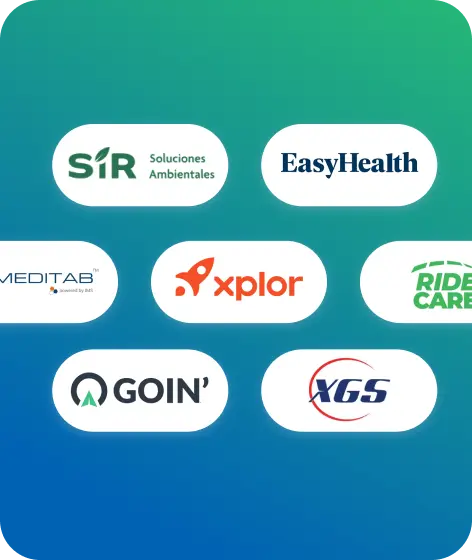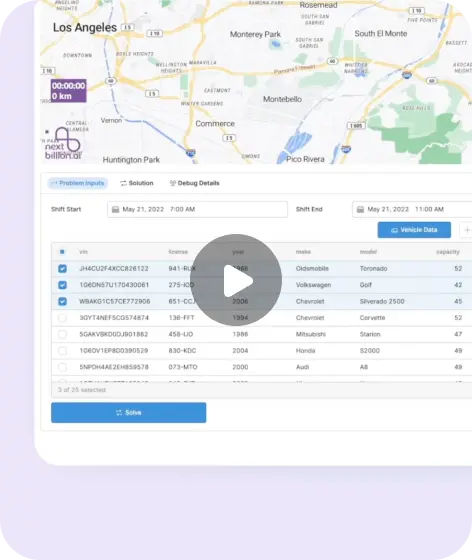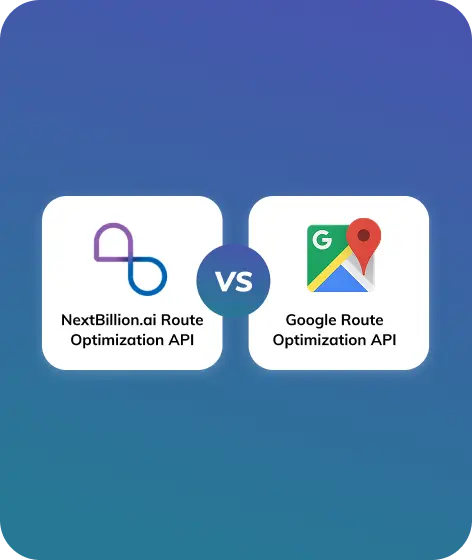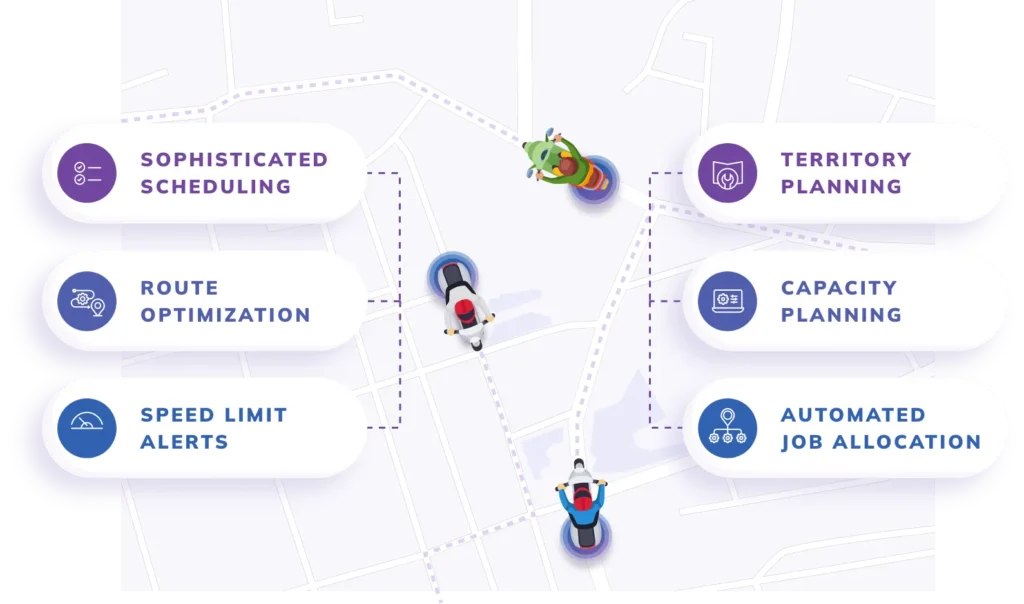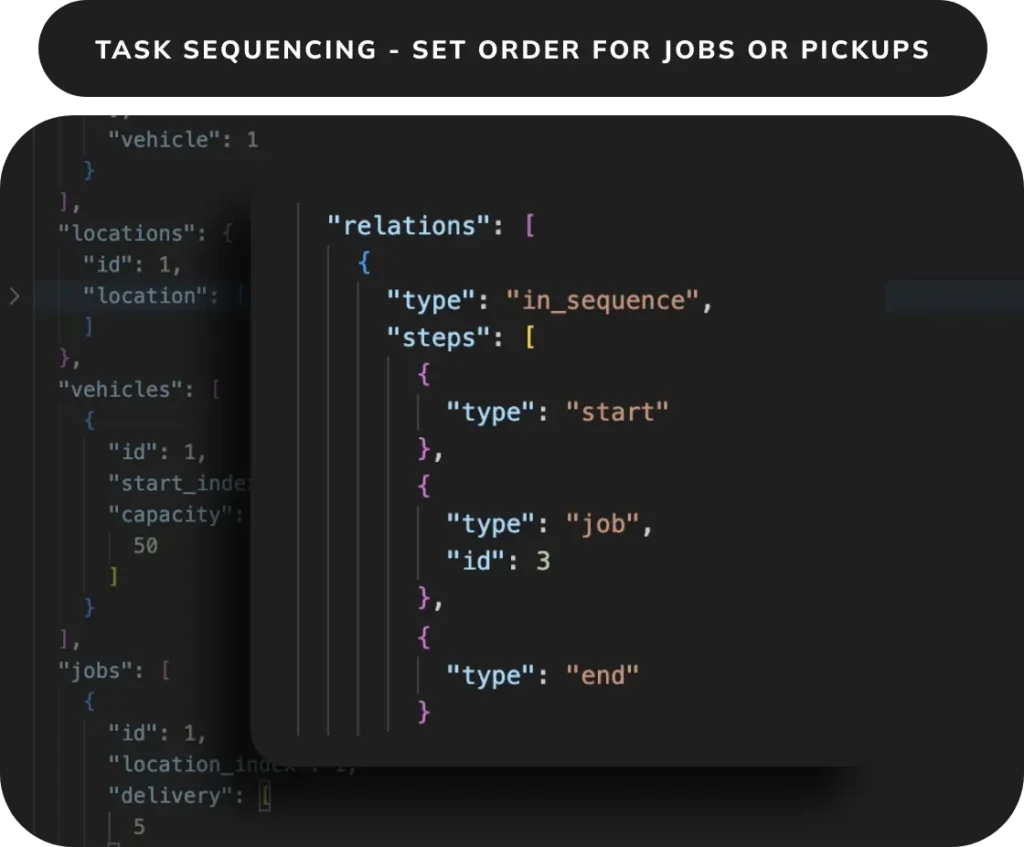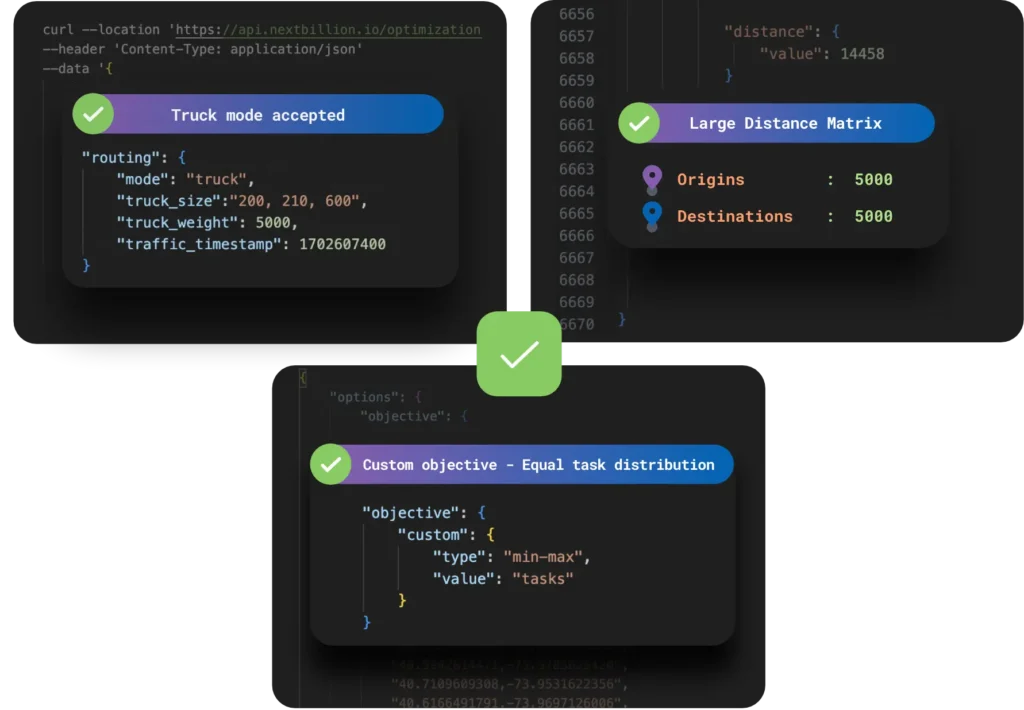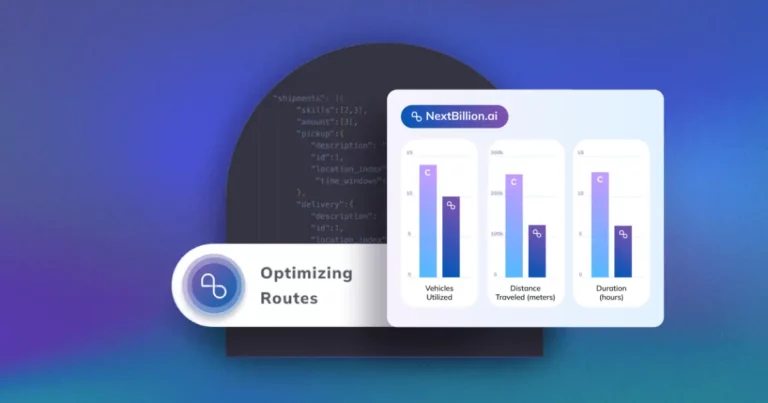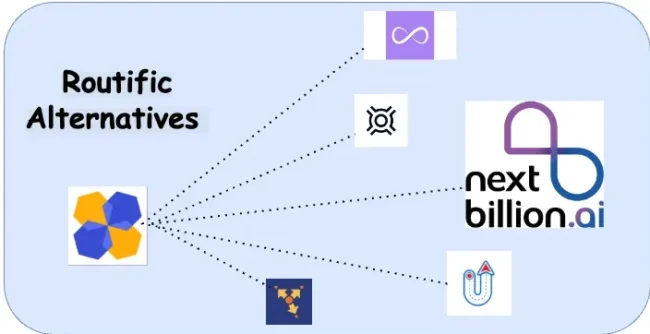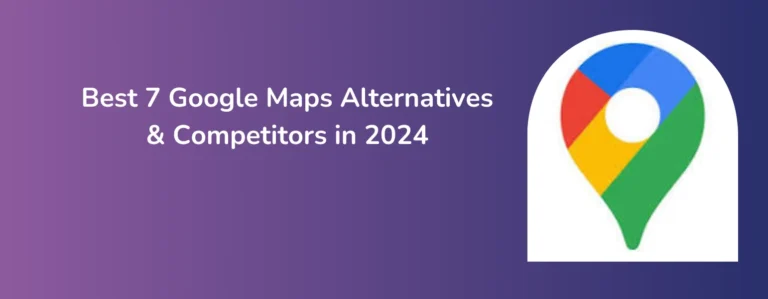Field service operations thrive on precision and efficiency, making task sequencing a critical element for success. By optimizing the order of tasks, companies can enhance productivity, reduce travel time, and improve customer satisfaction.
In this article, I’ll explain task sequencing, comparing the capabilities of two major players: NextBillion.ai and Google Route Optimization API. I’ll explore how each solution addresses the complexities of task sequencing and how they impact the field service landscape.
What is Task Sequencing in Field Service Operations?
Task sequencing in field service operations refers to the process of determining the most efficient order in which tasks should be completed. This involves organizing tasks to minimize travel time, reduce costs, and improve overall efficiency.
Task sequencing is about prioritizing and arranging tasks in a way that optimizes resource use. This includes scheduling service visits, deliveries, or maintenance activities in a sequence that ensures the quickest and most cost-effective routes.
Key Factors Considered in Task Sequencing
Geographical Proximity: Tasks are arranged based on their locations to minimize travel distance and time.
Task Duration: The expected time to complete each task is considered to create a feasible schedule.
Resource Availability: The availability and skill sets of field service agents are matched to the tasks at hand.
Customer Preferences: Preferences for specific service times or dates are taken into account to enhance customer satisfaction.
Priority Levels: Tasks are sequenced according to their urgency and importance.
Importance of Task Sequencing
Effective task sequencing can significantly impact field service operations in several ways:
Increased Efficiency: By reducing travel time and optimizing routes, more tasks can be completed within the same time frame.
Cost Savings: Efficient task sequencing lowers fuel consumption and operational costs.
Enhanced Customer Satisfaction: Timely and reliable service boosts customer trust and loyalty.
Resource Optimization: Better utilization of field service agents and equipment leads to improved productivity.
Now let’s look at what are the limitations of Google Route Optimization API in task sequencing?
Limitations of Google Route Optimization API in Task Sequencing
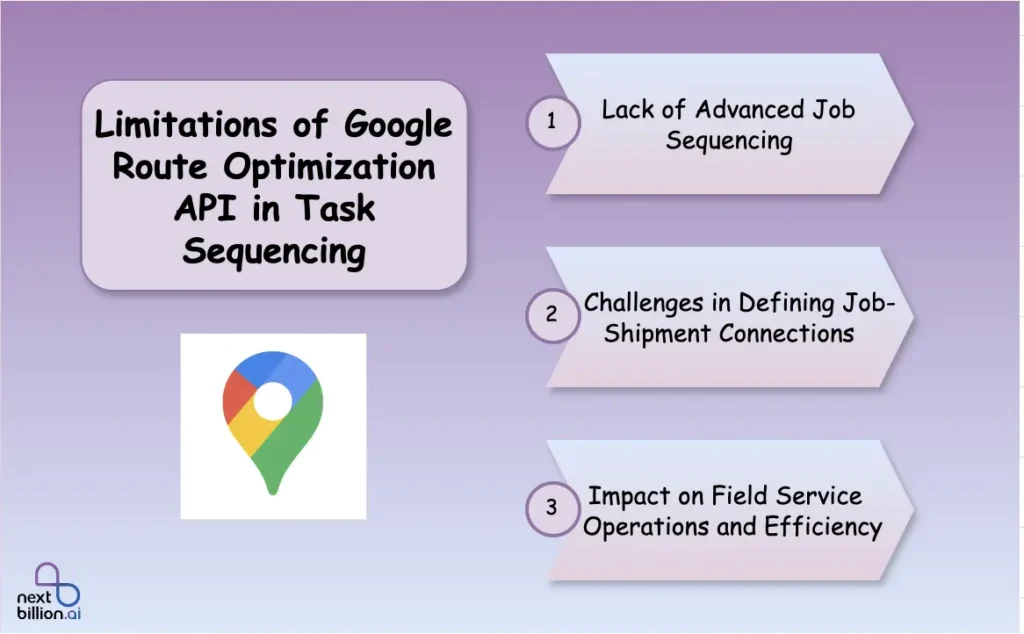
While Google Route Optimization API offers valuable features, it comes with limitations in task sequencing that can impact field service operations negatively:
1. Lack of Advanced Job Sequencing
Google Route Optimization API may lack advanced algorithms for optimizing job sequencing. Without sophisticated sequencing capabilities, businesses may struggle to prioritize tasks efficiently, leading to suboptimal routing and reduced productivity.
2. Challenges in Defining Job-Shipment Connections
Google Route Optimization API may pose challenges in defining job-shipment connections. Businesses may find it difficult to customize these connections to reflect specific relationships between tasks and shipments accurately. This lack of customization can hinder the ability to optimize task sequencing effectively.
3. Impact on Field Service Operations and Efficiency
The limitations in task sequencing with Google Route Optimization API can have a significant impact on field service operations and efficiency. Suboptimal job sequencing may result in increased travel time, inefficient resource utilization, and delayed service deliveries. Ultimately, this can lead to decreased customer satisfaction and higher operational costs.
In summary, the limitations of Google Route Optimization API in task sequencing can hinder the ability of businesses to optimize field service operations effectively, impacting efficiency and customer satisfaction.
Refer to this notebook about Female Employee Transportation Solutions with Escort Services to learn how NextBillion.ai’s task sequencing capabilities can be used to solve real-world scenarios.
NextBillion.ai recognizes the complexity of field service operations and understands the diverse business constraints that influence task sequencing. Whether it’s priority, technician skills, or customer preferences, NextBillion.ai takes into account these constraints to optimize task sequencing effectively.
Sequencing Relationships: Direct and Indirect Sequences
Efficient task sequencing involves understanding both direct and indirect relationships between tasks. Here’s why they matter and how NextBillion.ai excels in handling complex sequencing designs:
Importance of Direct and Indirect Task Sequencing
- Direct Sequences: Direct task sequencing refers to tasks that must be performed in a specific order, such as picking up an item before delivering it. Ensuring the correct sequence is crucial for maintaining operational efficiency and meeting customer expectations.
- Indirect Sequences: Indirect task sequencing involves tasks that may not have a direct relationship but still impact each other’s execution. For example, completing one task might affect the availability of resources for another task. Understanding these indirect relationships is essential for optimizing overall workflow and resource allocation.
NextBillion.ai’s Capability in Handling Complex Sequencing Designs
NextBillion.ai revolutionizes task sequencing for field service operations, offering advanced features that enhance efficiency and productivity. Here’s how NextBillion.ai achieves this using the jobs, shipments and relations objects:
1. Advanced Task Sequencing Algorithms
NextBillion.ai employs sophisticated algorithms to optimize task sequencing, taking into account factors such as technician skills, job priorities, and time constraints. This ensures that tasks are assigned in the most efficient order, maximizing productivity and minimizing travel time.
2. Customizable Job-Shipment Connections
Businesses can customize job-shipment connections to define specific relationships between tasks and shipments. Whether it’s grouping related tasks together or prioritizing certain shipments, NextBillion.ai offers flexibility to tailor task sequencing according to unique requirements.
By leveraging these features, NextBillion.ai enables businesses to streamline field service operations, optimize task sequencing, and deliver exceptional service to customers.
Why is NextBillion.ai the Preferred Choice for Field Service Companies?
In field service operations, NextBillion.ai is the preferred choice for companies seeking to optimize their workflows and deliver exceptional service. Here’s why:
- Advanced Task Sequencing: NextBillion.ai’s advanced algorithms optimize task sequencing, prioritizing jobs efficiently to minimize travel time and maximize productivity.
- Customizable Solutions: NextBillion.ai offers customizable solutions that cater to the unique needs of each business. From defining job-shipment connections to handling complex sequencing designs, NextBillion.ai provides flexibility and adaptability.
- Seamless Integration and Implementation: NextBillion.ai prioritizes a smooth integration process supported by a dedicated implementation team that assists businesses in seamlessly incorporating NextBillion.ai’s solutions into their existing workflows.
- Dynamic Routing Adjustments: NextBillion.ai excels in handling time-dependent routing adjustments, enabling businesses to adapt to changing conditions such as road closures and traffic congestion to ensure timely deliveries.
- User-Friendly Interface and Support: NextBillion.ai offers user-friendly interface tools and robust support resources, including documentation and technical support services, empowering users to navigate the platform effectively and maximize its value.
- Commitment to Data Privacy and Security: NextBillion.ai prioritizes data privacy and security, ensuring user data is protected through stringent measures and compliance efforts, instilling trust and confidence in users.
NextBillion.ai’s combination of advanced technology, customization options, seamless integration, and commitment to data privacy and security makes it the preferred choice for field service companies looking to optimize their operations and deliver superior service to customers.

